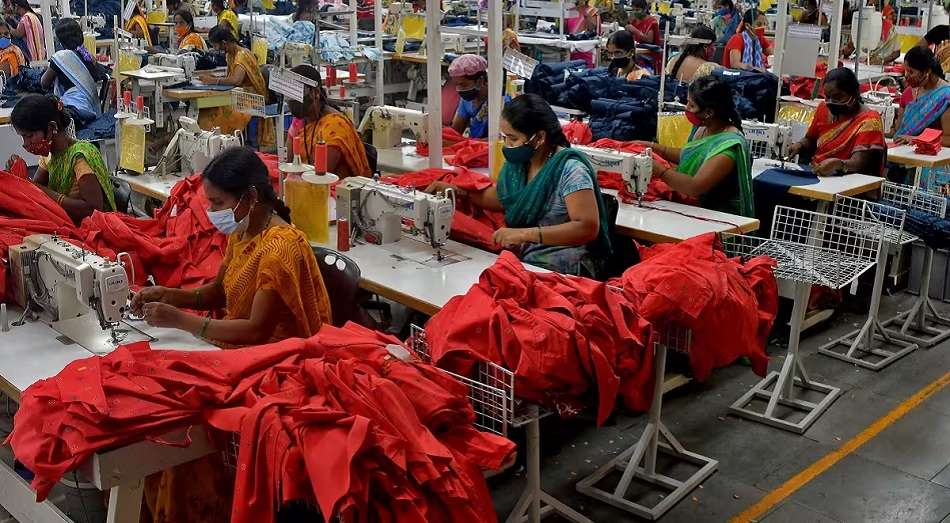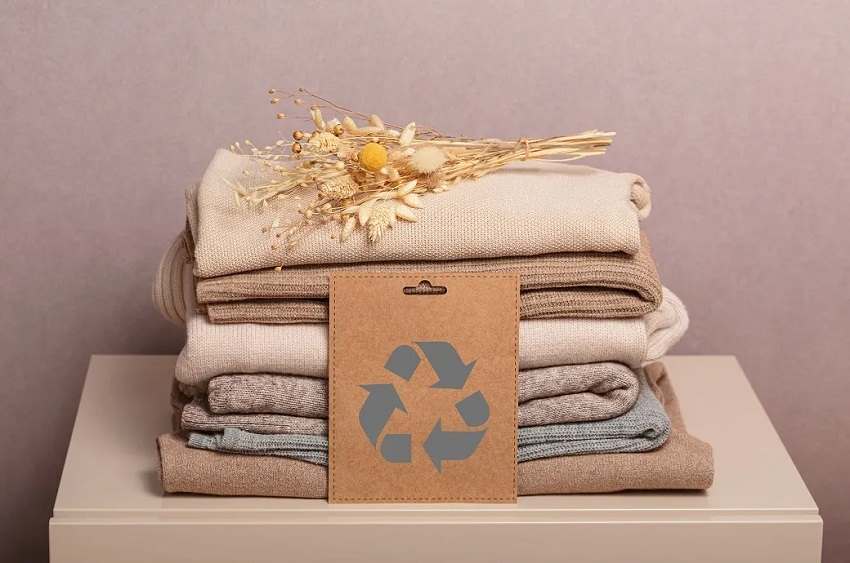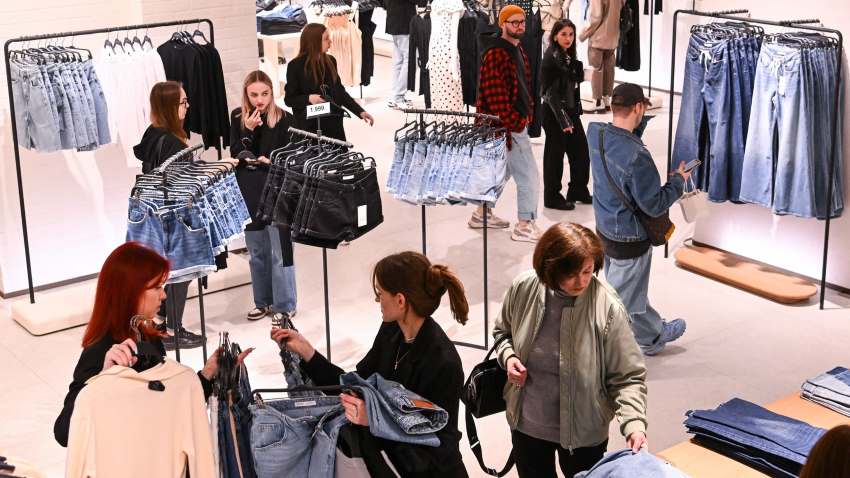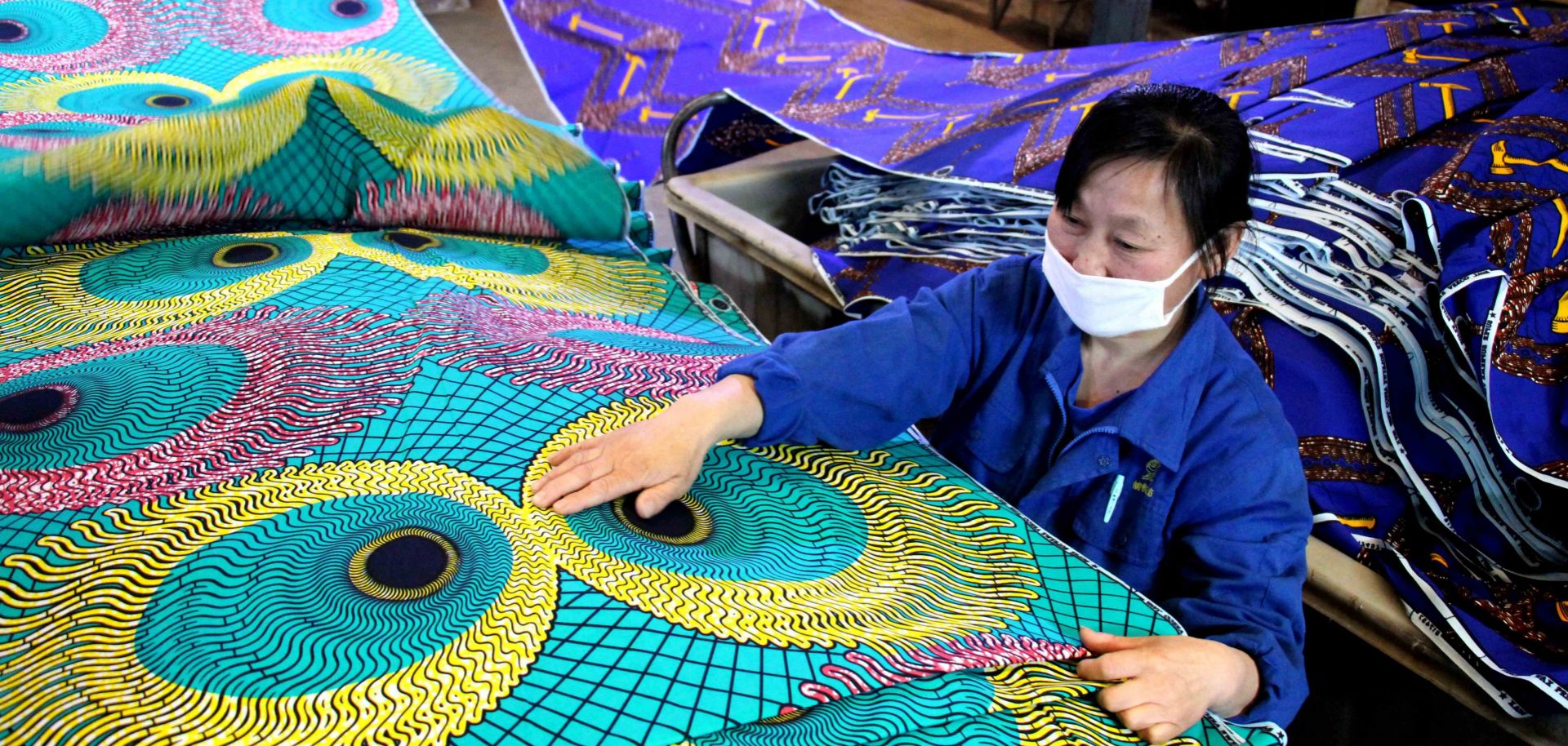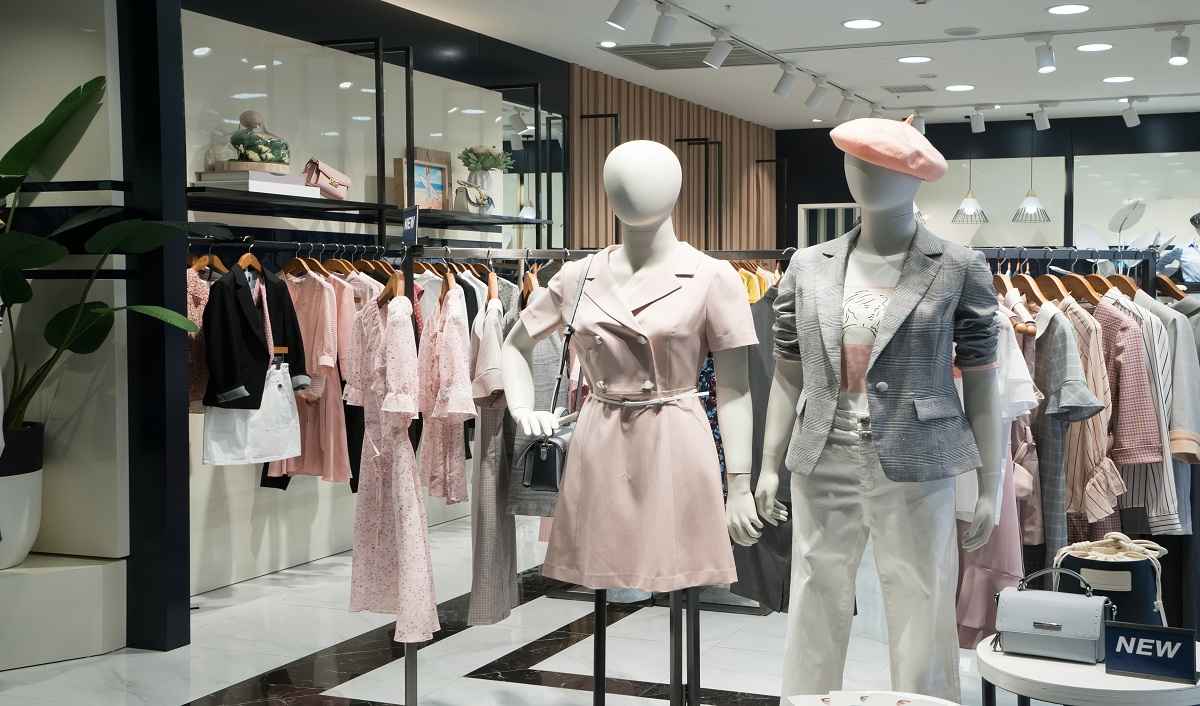FW
The Clothing Manufacturers Association of India (CMAI) is organising the 66th National Garment Fair from January 29 to 30, 2018 at Hall I, Bombay Exhibition Centre, NSE Complex, Goregaon (E), Mumbai. This is the largest Spring/Summer Trade Fair ever organized by the Association. This B2B Fair will display more than 400 brands spread over 2,00,00 sq. ft. Approx 15,000 trade visitors are expected to visit the fair. The exhibits include men’s wear, women’s wear, kids wear, ethnic wear and accessories.
Apex Awards, the premier awards for Indian apparel industry, will be held on January 29 at Hall II. These awards acknowledge excellence in apparel manufacturing, marketing, supply chain management, exports, retail while recognising significant contributions to the industry from allied industries. This year, The Lifetime Achievement Award will be bestowed upon Sanjay Lalbhai, Chairman, Arvind Brands for his invaluable and outstanding contribution to the growth of the Indian apparel industry. Talking about bringing about policy changes, Rahul Mehta, President, CMAI says several amendments brought about by the GST Council were steps in the right direction and the textile and clothing industry has seen a fair amount of relief, especially in procedures. A lot more still needs to be done and CMAI is continuing its active interaction with the government and the GST Council to address these issues.
Teijin Aramid has announced plans to increase the production capacity for its Twaron super fiber by more than 25 per cent. This additional capacity will become available within the next five years. With this capacity expansion, the company will be able to meet future market demand and provide its customers with the material they need to excel in their markets. Demand for Teijin’s high-performance para-aramid fiber Twaron is growing steadily, and the outlook is positive. Expanding the aramid business is one of the Teijin Group’s key strategies, with an expected annual growth of 8 per cent. The company is determined to ensure that this growth will go hand in hand with an even better service for its customers.
As a market leader, Teijin Aramid aims to capture a substantial part of the global market growth, which should eventually lead to a future market share of more than 50 per cent. Substantial investments are planned to raise the production and adopt the latest technology.
By introducing lean methodology and internal optimization programs, Teijin Aramid has been able to increase its Twaron production capacity by 130 per cent since 1999. It is determined to keep up this best-practice way of working and keep investing in its factories, implement the latest technologies, and ensure economy of scale. This will enable the company to keep up with market demand and market competitiveness, while meeting its customers’ demand.
The total extra capacity is planned to be fully available in 2022. Teijin Aramid is currently implementing a new spinning technology at its Twaron facility in Emmen, the Netherlands, as was stated in July 2017. The extra capacity of that investment will become available as of May 2018.
United Towel Exporters is confident that exports to Europe will go up exponentially post the expansion of business following acquisition of a 70 per cent stake in the Netherlands-based Vespo Groep BV. The acquisition of majority stake in the home textile company would propel United Towel’s exports to $13.50 million in 2018, up 221 per cent from the current $4.2 million, the Finance Division told the Cabinet’s Economic Coordination Committee (ECC) in a meeting held late last month.
The projection while requesting the ECC to permit United Towel to remit $9.39 million to acquire 70 per cent equity in Vespo Groep BV. The State Bank of Pakistan (SBP) had forwarded the company’s request for remitting the money. Sponsors of United Towel have over 30 years of experience in value added textile manufacturing and exports of diverse products for the hospitality, healthcare, home fashion and work wear industries. Vespo Groep is a textile market leader in designing, producing and supplying products throughout Europe. The group’s expansion to Nordic countries is expected to enhance United Towel’s export prospects. The payback period of the proposed investment was expected to be about 13.5 years with the internal rate of return estimated at 26.72 per cent.
The proposed equity investment would be financed from export proceeds retained in special foreign currency accounts of the company. SBPs regulations permit textile exporters to keep 10 per cent of their export proceeds in foreign exchange. The Finance Division recalled that the ECC had decided in 2002 that the Central Bank should approve overseas investment proposals of up to $5 million, while investments valued at over $5 million should get the green signal from the ECC.
The SBP had evaluated the proposal and was seeking permission for remitting $9.39 million on the condition that the company would fund all future foreign remittances from the same account.
Gujarat Commercial Tax Commissioner, P D Vaghela has assured all stakeholders in Surat, the largest man-made fabric (MMF) sector to present the issues and demands related to GST before the Central government and the GST Council in order to find an amicable solution to these issues. Addressing a meeting of textile industry stakeholders at Southern Gujarat Chamber of Commerce and Industry (SGCCI), Vaghela promised, “I have heard the problems and issues faced by power loom weavers, traders, embroidery unit owners and women doing embroidery handwork. The issues are genuine and the state government will seriously take up the issues with the Central government and the GST Council.
He said most issues related to GST come under the purview of the GST Council, however, the issues like inter-state e-way bill provision etc will be sorted out by the State government. Last week, social media was abuzz when the CMO tweeted in favour of Surat’s diamond industry after the GST Council reduced the GST rate on polished diamonds from 3 per cent to 0.25 per cent. The CM was lambasted on social media when the textile industry raised questions whether the government did not consider Surat as the textile city.
Federation of Indian Art Silk Weaving Industry (FIASWI) Chairman, Bharat Gandhi said, “The industry is getting assurances since the day GST was rolled out. I think the visit of Vaghela in the textile and embroidery units indicates that the State Government is serious in taking a stand at the GST Council to see that the issues related to the textile sector are addressed amicably.” Gandhi announced they had put up three demands, including refund of input tax credit, credit on opening stock and implementation of central government notification on increasing basic customs duty (BCD) on imported fabrics from China. Leader of power loom weaving sector Ashish Gujarati asserts, a single demand of input tax credit will solve 10 other issues pertaining to GST. Vaghela is of the opinion that the state government will have to give a stiff fight at the GST Council to press for the refund demand of the textile sector.
Sara Textiles, (part of the diversified Sara Group) founded by D P Singh, a Noida-based home furnishing exporter with is growing at a 15 to 20 per cent every year and targeting a 35 per cent growth. S M Dwivedi, CEO, who started working as a QC Manager, explains his confidence about achieving his target. He believes the textile industry can be managed through professionals without the day-to-day involvement of promoters. Sara Textiles is almost a debt-free with 100 buyers and exporting to over 40 countries. Apart from a major share in Europe and a list of well known clients such as Lidl, Germany, the company is also associated with many dotcom companies in US and hotel industry in many countries.
Dwivedi says they never leave any of customer, big or small and no major customer has left them so far. Whenever they expand, they look at new markets and capacity dedicated to the existing customers remains untouched. Every difficult time that they have undergone has been a learning experience for the company and the entire team has managed the crisis successfully with the support of its vendors. This has ensured the smooth running of the organization so far, he notes.
“Whatever and whenever we have faced challenging times, due to recent policy changes or otherwise, we have evolved being more innovative in designing, costing and market developments and have enhanced our focus on the services. All this in a collaborative manner would deliver much better results in the coming years. We are managing our inventories quite precisely with thin manufacturing process and now we are into the peak season getting lot of orders from Europe and other countries also. We are even fully booked till the last quarter of this calendar year.”
The Pakistan government aims to enhance cotton production next season and is likely to announce a Rs 10 billion research development fund, as harvest for the natural fibre remained lacklustre for the last few years. This was announced at a high level meeting. The aim of creating a R&D was welcomed by representatives of major cotton-producing provinces, Punjab and Sindh which attended the meeting held at the Planning Commission. Officials disclosed it was a 10-year plan which would be sent to the federal cabinet for approval.
This plan may be formally announced in next fiscal year’s budget in May this year. Under the plan, the government will spend Rs 1 billion every year on R&D activities to find out ways of increasing the production of cotton, which keeps the home fires of the textile industry of Pakistan burning. The plan was announced after spinning mills went to court challenging the cotton cess of Rs 400 million that they had been paying every year for spending on R&D, however, for the past two years, they had refused to contribute and went into litigation with the federal government. It was decided at the meeting that the research fund would be disbursed in the form of competition grant to researchers. The absence of a support price has also pushed cotton farmers towards planting other crops such as wheat and sugarcane for which the government has been announcing support prices to ensure a fair return to growers. In recent years, cotton plantation area has shrunk post setting up of sugar mills in the cotton zone of south Punjab. Cotton farmers who have not been able to generate cost effective production have switched to sugarcane cultivation in areas where sugar mills have been set up.
The presence of mills in top cotton-growing areas and their increasing crushing capacity have resulted in a 26 per cent fall in cotton-sowing areas, especially in south Punjab including Rahim Yar Khan and Muzaffargarh. The Ministry of Textile Industry has also demanded provinces should stop granting permission to establish new sugar mills in the cotton-growing areas. Cotton production has been estimated at 11.1 million bales in the on-going season when compared to the target of 12.6 million bales. The harvest was even lower at 10.7 million bales last year.
Macpi India launched innovative finishers for denim which are selling out quickly. With casual jackets being in trend, they have also launched finishers for casual jackets, crafted with various fabrics. Mohanti Basanta Kumar, Director (Sales), sees high potential for his products and business is growing exponentially, not only for Macpi India but also the industry as a whole. And Mohanti expects the trend to continue for next five years.
Macpi was exhibiting at the recent Garment Technology Expo (GTE) held in Delhi. Speaking to Fashionatingworld Mohanti says, “We import machinery from Italy and China and have two manufacturing facilities in Italy and one in China. The company is based in Italy and this is our 14th year in India.” Mohanti avers this is the 20th GTE for the company. “We have seen a change in the manner with which clients deal with us at the fair. Earlier, they would come and strike deals to get discounts now they come to our office and expect significant discounts.” He points out GTE serves the purpose of meeting clients/potential clients in huge numbers at one niche platform. Hence, it saves efforts, time and energy. “We even meet clients from small towns who would not otherwise get a chance to review our range.” Mohanti says India is undergoing a transition which is good for the country. “We are optimistic about reforms as the market is constantly seeing improvement and that is a good sign for the economy.” Finishing industry undergoing change
Discussing the finishing sector he says, “There has been a marked improvement in garment finishes. We opened our office in 2004 and have a presence for over 30 years. Earlier people would ask only for vacuum and ironing tables but today, everybody is looking at automated dressing machines amongst others. This move towards automation indicates the Indian garment sector is gradually becoming more productive and quality-oriented. Earlier, with manual operations, quality was good but lacked productivity.”
Mohanti sees a promising domestic market with many opportunities, given the scale, size and population of the country. “If one looks at exports, countries like India and Bangladesh may hope for good growth in the garmenting sector, however, China is moving towards high engineered items.” The market is still not mature. “We lack discipline and that is our drawback. We need to resolve exporter’s issues and labour laws for the well-being of the industry.”
Mohanti feels competition is fierce but it helps us work harder, “Now, we are focusing mainly on finishing and fusing machines. Innovation and product development has been taken on a priority. The market is still nascent in India. Our strength lies in finishing and we are doing an exceptional job in that area,” he concludes.
Lectra has appointed Holger Max-Lang as Managing Director of Lectra Central & Eastern Europe region, Russia. Holger’s role is to support fashion & apparel, automotive and furniture companies in the region as they embrace Industry 4.0. Anchored in the digitalisation of industrial processes, from design to production, Industry 4.0 is redefining how factories are organised; smart and connected, they are driving the value chain, propelling a new digitalized lifecycle for products.
Daniel Harari, Chairman and CEO, Lectra explains, “The transformation to Industry 4.0 is in full swing: the Industrial Internet of Things, Software as a Service (SaaS), cloud technology, data analyses and data exploitation have become key.”
Central & Eastern Europe and Russia is strategic for Lectra, offering strong potential in the Group’s main market sectors due largely to: A strong automotive industry; a dynamic furniture industry, especially in Germany and Poland; and a close connection between fashion brands in Germany, Austria, Switzerland and suppliers in Eastern Europe.
Working for Lectra for over 15 years, Holger has a deep experience and knowledge of Lectra’s DNA and is in a strong position to support customers in the digitalisation of their processes. “Lectra is very well-positioned to support our customers in their transformation,“ says Holger.
Following marketing and sales positions in the IT and automotive industry sectors, Holger joined Lectra Germany in September 2002 as a salesperson for automotive accounts. He held diverse sales’ roles in the region, including the position of Sales Manager for all Lectra markets in Central & Eastern Europe region, Russia. Since September 2017 Holger has held the role of Business Development Director, Automotive, with the responsibility to develop the leather cutting activity worldwide.
Kering has been named as the world’s most sustainable textile, apparel and luxury goods corporation, as per the Corporate Knights’ Global 100 index published at the World Economic Forum in Davos today. This marks the third consecutive year that Kering has been included in the ranking, placed 1st within its own industry and 47th overall within the 2018 Global 100 index.
Marie-Claire Daveu, Chief Sustainability Officer and Head of international institutional affairs of Kering says, “A criterion in all business decisions, traversing all departments and areas of our supply chain, we consider sustainability to be the Kering seal of savoir-faire. Inclusion in Corporate Knights’ 2018 Global 100, as the most sustainable corporation in the textile, apparel and luxury sector, is thus truly an honour for Kering, and a source of motivation to continue our pursuit of a more sustainable luxury.” The Corporate Knights’ Global 100 is recognised as the joint best index in the world, as per the Branding Institute, for its relevance, insight, trustworthiness and convincing methodology. The index is devised from a starting universe of 7,425 listed companies which represents a market capitalisation of over $2 billion on October 1, 2017.
A global Luxury group, Kering develops an ensemble of luxury houses in fashion, leather goods, jewellery and watches: Gucci, Bottega Veneta, Saint Laurent, Alexander McQueen, Balenciaga, Brioni, Christopher Kane, McQ, Stella McCartney, Tomas Maier, Boucheron, Dodo, Girard-Perregaux, Pomellato, Qeelin and Ulysse Nardin. Kering is also the force behind sport and lifestyle brands Puma, Volcom and Cobra. The group generated revenue of €12.385 billion in 2016 and had over 40,000 employees.
IndustriALL Global Union and UNI Global Union have reached a $2.3 million settlement with a multinational apparel brand to resolve life-threatening workplace hazards. The settlement, reached through an arbitration process under the legally-binding Bangladesh Accord for Fire and Building Safety, represents one of the largest payments made by a brand to remedy workplace dangers in its supply chain.
The brand, under the terms of the settlement, has agreed to pay $2 million towards remediation of more than 150 garment factories in Bangladesh. The apparel maker will contribute a further $3,00,000 in IndustriALL and UNIs joint Supply Chain Worker Support Fund that was established to support the work of the global unions to improve pay and conditions for workers in global supply chains.
The global unions brought the case to the Permanent Court of Arbitration arguing that the brand did not require its factories to remedy timely hazards leaving thousands of workers in dangerous conditions. The unions also charged that the brand did not ensure that it was financially feasible for its factories to fix on-going safety issues, as required by the Accord. At the time of the case’s filing in October 2016, none of the brand’s known supplier factories had completed the required remediation and all of them had at least one high risk safety hazard which had not been fixed. These included factories lacking fire alarm and sprinkler systems, lacking fire doors and not separating flammable materials from the factories’ boilers.
The unions’ claim for arbitration urged several of the brand’s contracted factories towards better progress—one went from a remediation rate of around 50 per cent in October 2016 to over 90 per cent in October 2017. However, many other factories supplying the brand continue to stagger far behind, with remediation rates hovering near 50 per cent and serious structural and fire safety issues left unresolved. All necessary safety improvements need to be completed by the Accord’s expiration in May 2018.

